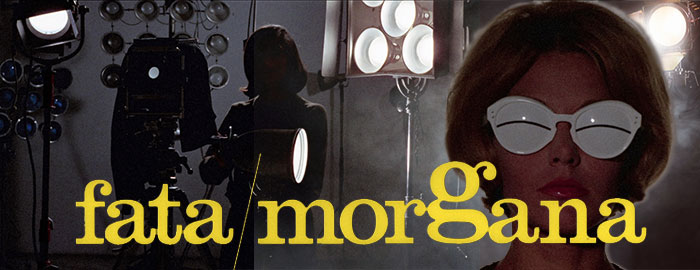
Color, 1965, 87 mins. 6 secs.
Directed by Vicente Aranda
Starring Teresa Gimpera, Marianne Benet, Marcos Martí, Antonio Ferrandis, Alberto Dalbés, Antonio Casas, Glòria Roig
Mondo Macabro (Blu-ray) (US R0 HD) / WS (1.78:1) (16:9)
While Spain was still 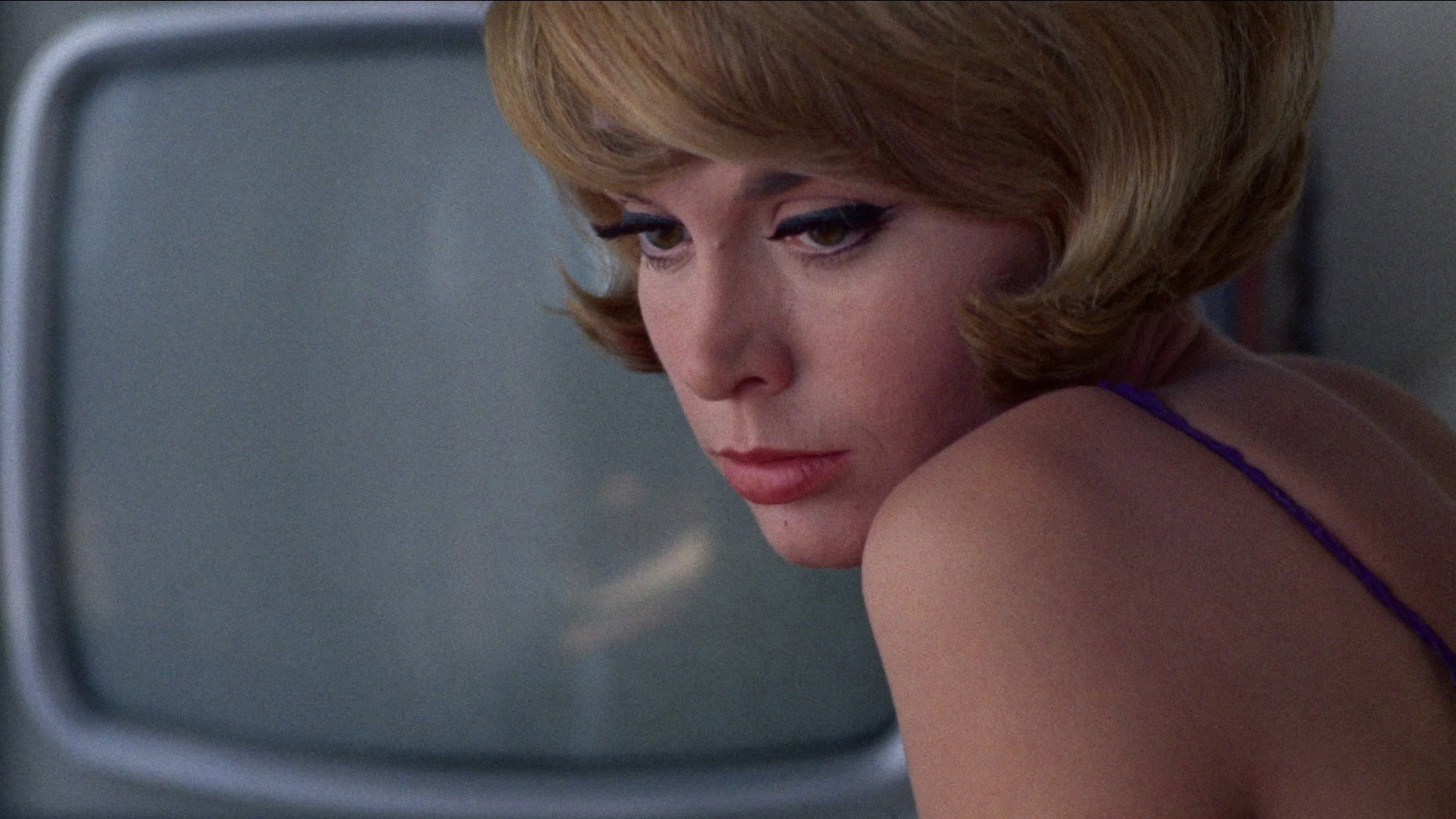 under tight dictatorial control in the '60s, that didn't stop a number of button-pushing
under tight dictatorial control in the '60s, that didn't stop a number of button-pushing 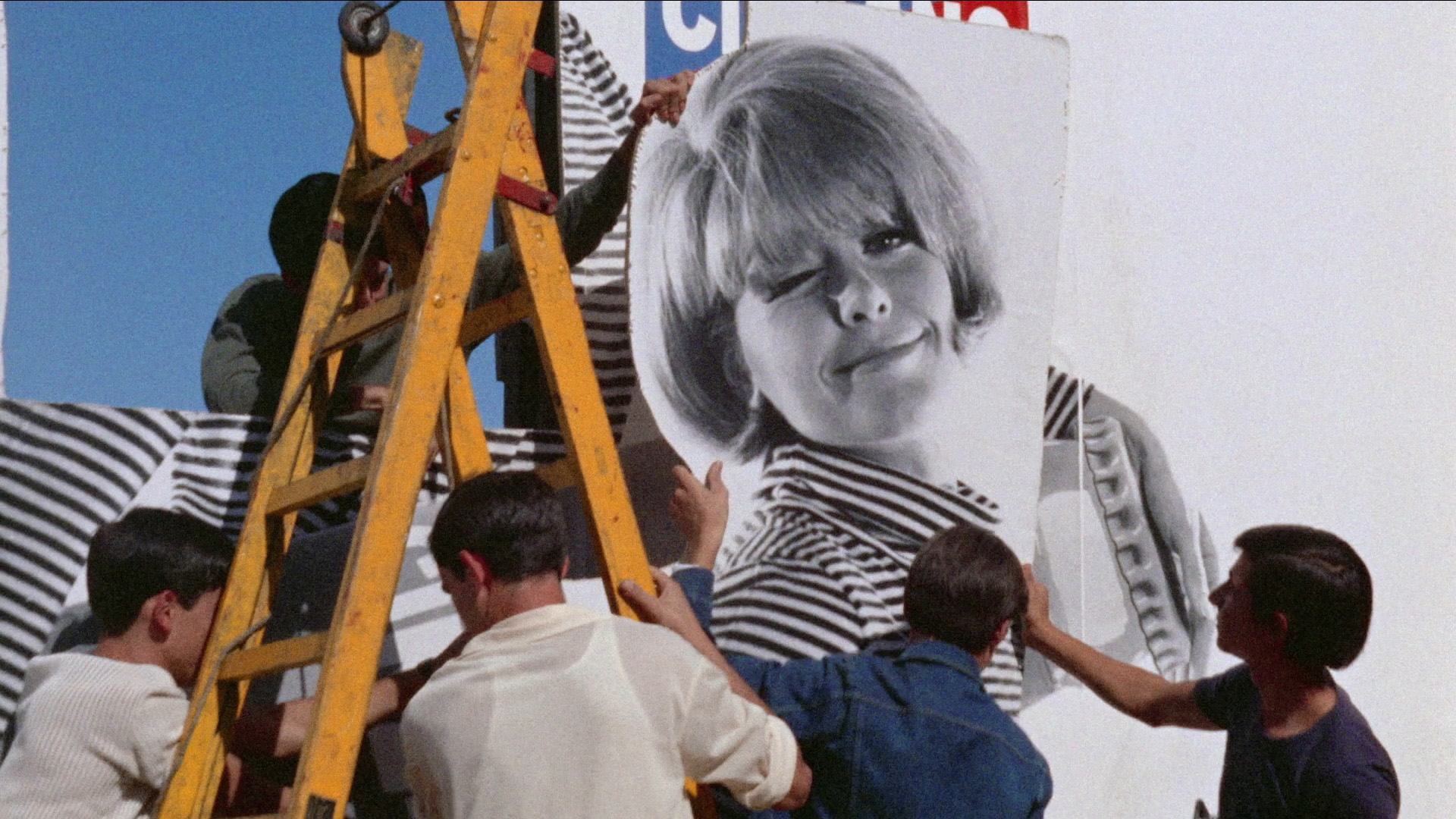 filmmakers from testing the waters to see how far they could take both narrative and adult content both at home and abroad. For his first solo theatrical feature, Vicente Aranda came out swinging with Fata Morgana, a pop art-flavored tale of futuristic murder and rampant consumerism a la neighboring Italy's orthodox gialli to come like Death Laid an Egg or the same year's unorthodox The Tenth Victim. You can also find echoes of Philip K. Dick (especially Minority Report) and the still influential L'avventura by Michelangelo Antonioni here (while also anticipating his Blow-up in spots), but the execution is definitely its own strange, hypnotic beast that also represents a turning point in Spanish cinema asserting its identity on an international stage.
filmmakers from testing the waters to see how far they could take both narrative and adult content both at home and abroad. For his first solo theatrical feature, Vicente Aranda came out swinging with Fata Morgana, a pop art-flavored tale of futuristic murder and rampant consumerism a la neighboring Italy's orthodox gialli to come like Death Laid an Egg or the same year's unorthodox The Tenth Victim. You can also find echoes of Philip K. Dick (especially Minority Report) and the still influential L'avventura by Michelangelo Antonioni here (while also anticipating his Blow-up in spots), but the execution is definitely its own strange, hypnotic beast that also represents a turning point in Spanish cinema asserting its identity on an international stage.
"This story takes place after the event in London," reads a cryptic bit of opening text as we're dropped in the middle of a rapidly depopulating Madrid. An unnamed disaster has unleashed so much repression in the populace that murder is not only commonplace, but the victims are apparently drawn to their killer who is often known beforehand. Gim (Night of the Devils' Gimpera), a busy and striking fashion model and 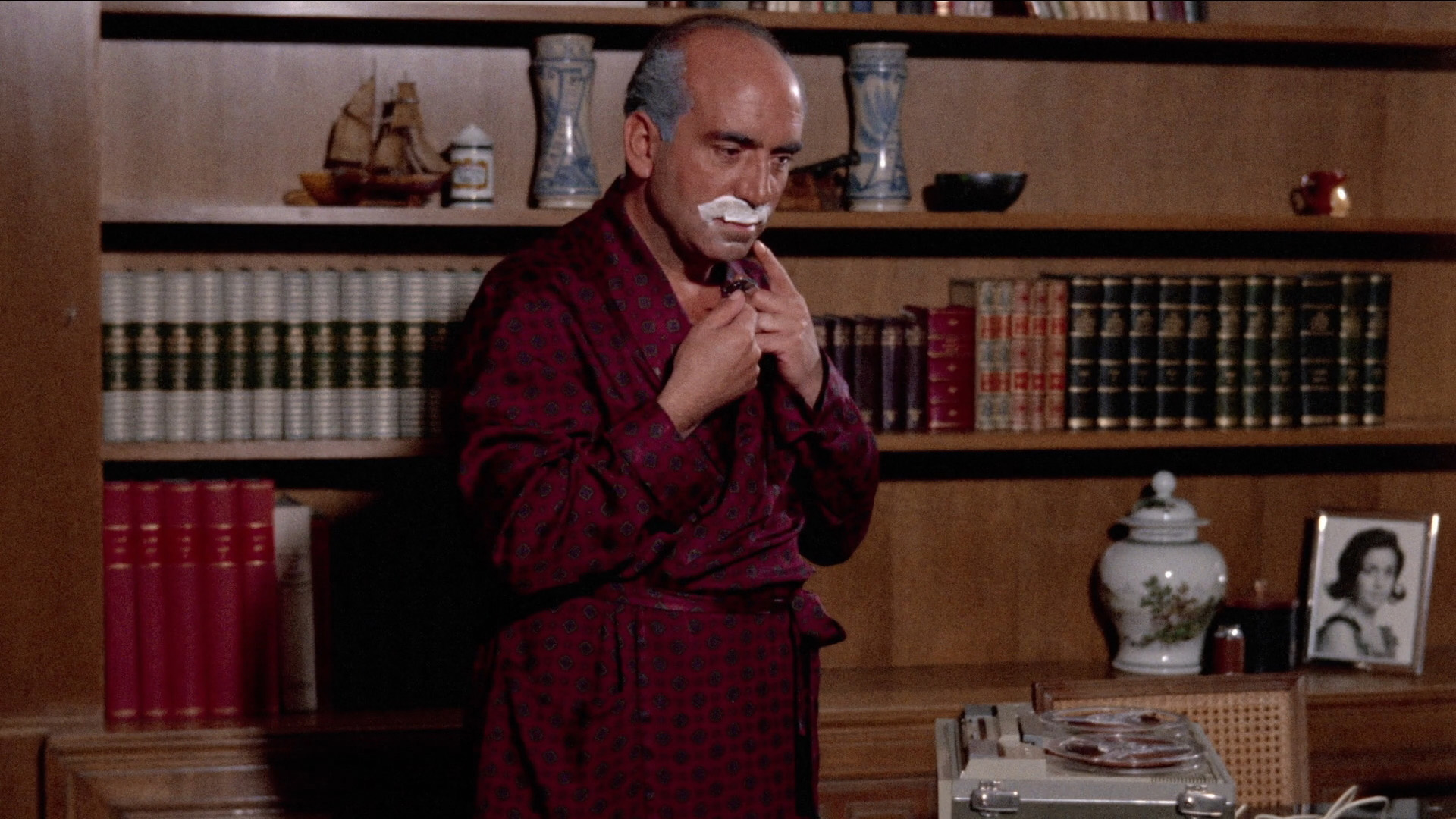 commercial spokesperson, has decided to stay in the city since she feels fleeting would serve no
commercial spokesperson, has decided to stay in the city since she feels fleeting would serve no 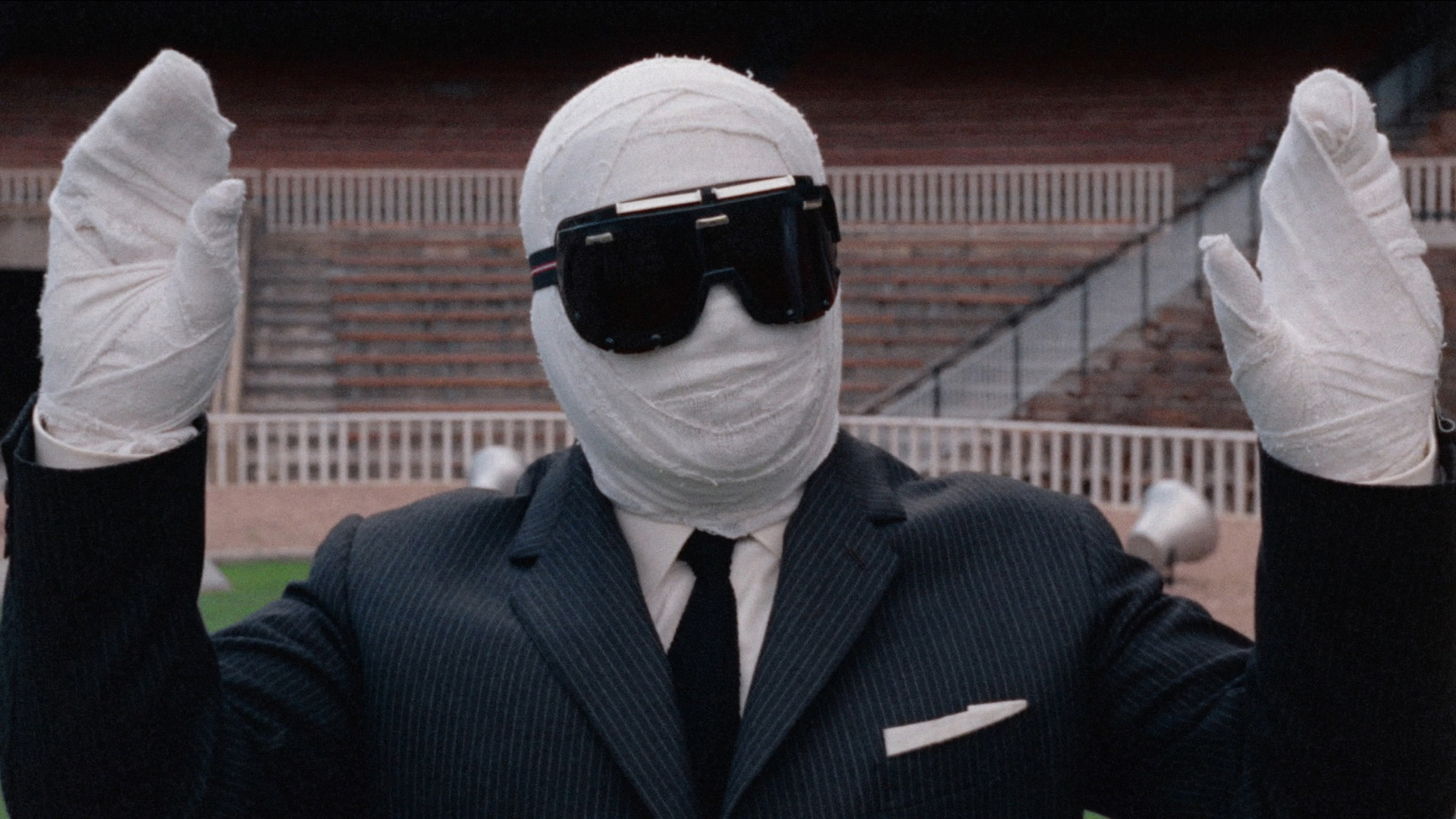 purpose, even when she's accosted by random citizens. A gang of young men fixated with Gim have sliced her likeness out of a large billboard advertisement and are carting it around town, while a man only known as The Professor (Ferrandis) tips off the authorities that Gim is going to be killed soon -- and he knows who will do it. Enter J.J. (Martí), an officer whose duty is complicated by Gim and the possibility that what may come to pass isn't as clear cut as it may seem.
purpose, even when she's accosted by random citizens. A gang of young men fixated with Gim have sliced her likeness out of a large billboard advertisement and are carting it around town, while a man only known as The Professor (Ferrandis) tips off the authorities that Gim is going to be killed soon -- and he knows who will do it. Enter J.J. (Martí), an officer whose duty is complicated by Gim and the possibility that what may come to pass isn't as clear cut as it may seem.
A product of the so-called Barcelona School devoted to fostering creativity as much as possible despite the oppressive government, Fata Morgana (or Fata/Morgana as it's stylized in the credits) is a striking meditation on advertising and genre tropes from thrillers to sci-fi, including overt nods to classics like The Invisible Man. In her debut role, real-life model Gimpera makes for an appealing lead and sets the groundwork for many more memorable Aranda female protagonists to come. It's also an interesting tactic to dodge censorship by setting the film in a strange society where its critiques could slip by more easily, thanks to a canny script by Aranda and Gonzalo Suárez Morilla.
Available in dupey copies over the years on the gray market (ditto for Aranda's troubled but more prestigious follow-up film, Las crueles, a.k.a. The Exquisite Cadaver), Fata Morgana made its Blu-ray debut in 2024 from Mondo Macabro as a limited redcase edition 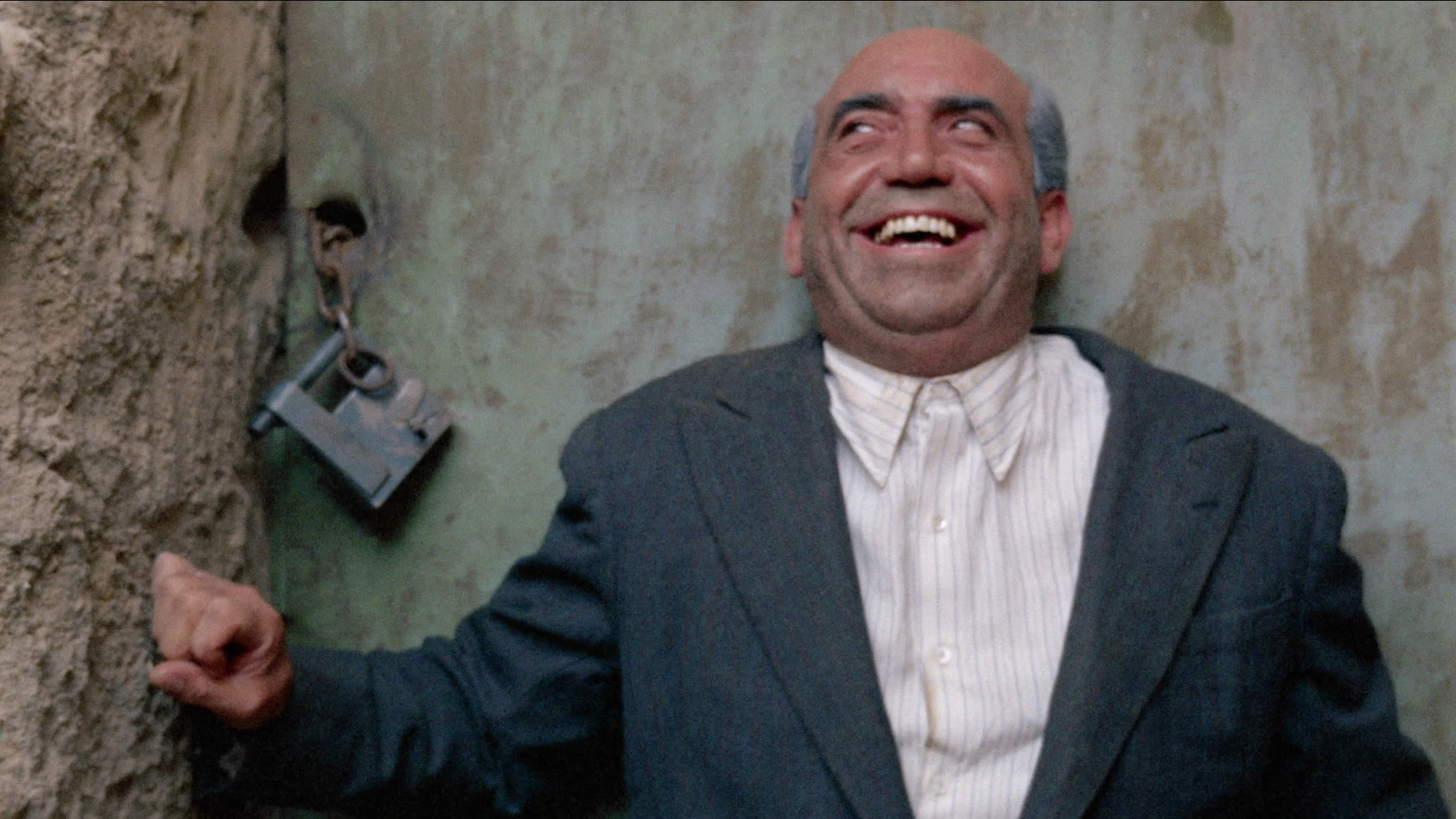 featuring an exclusive booklet with a
featuring an exclusive booklet with a 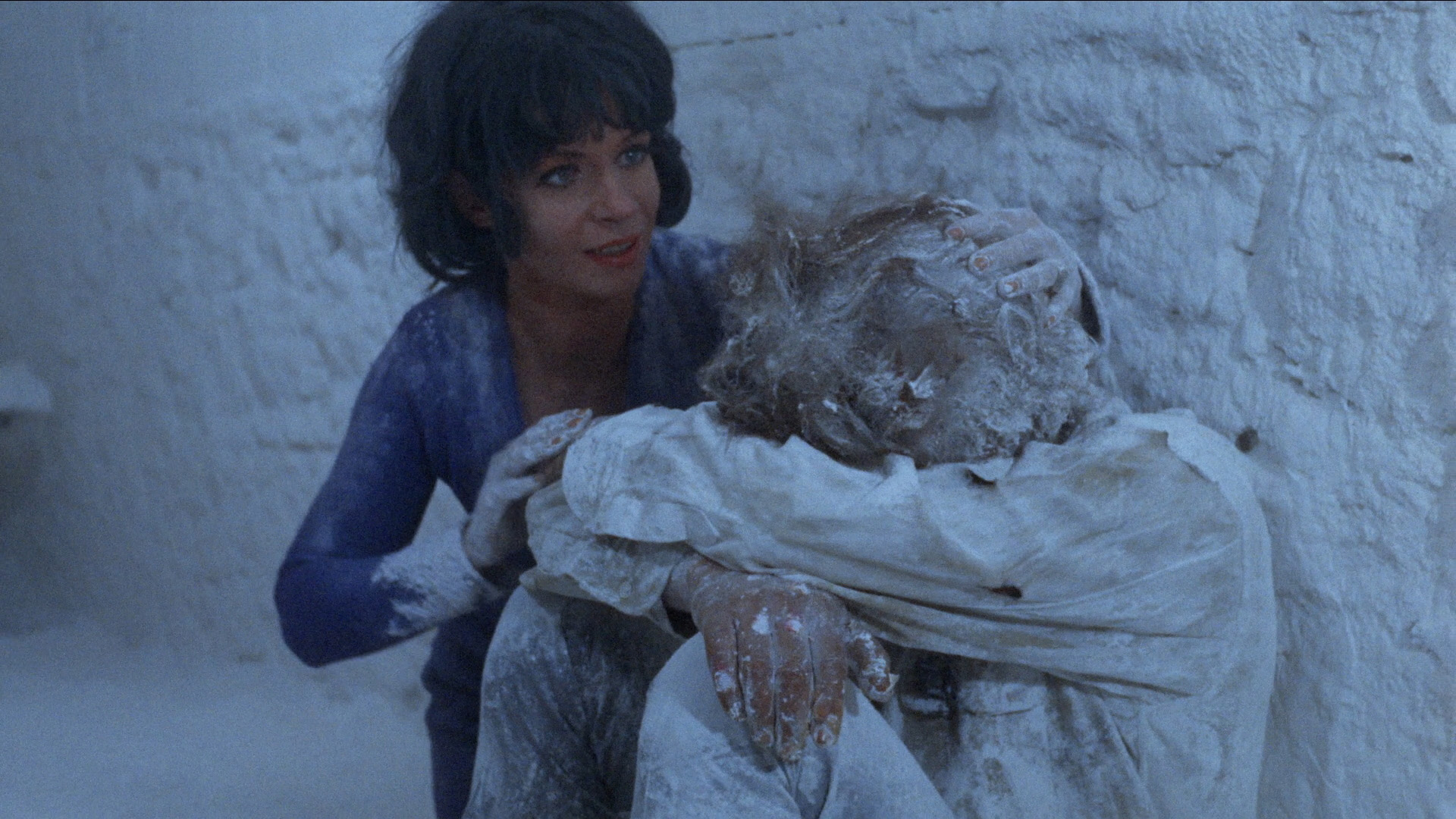 very thorough, informative essay on Aranda's career by Ismael Fernandez. The new 2K restoration on display here looks terrific, restoring the film's saturated, fascinating color scheme established with the comic strip panels seen in the opening shots. Detail and film grain are all impressive here, and the optional English subtitles for the DTS-HD MA 2.0 Spanish mono track are very good. Euro-cult specialist Rachael Nisbet delivers a packed, very worthwhile audio commentary, exploring the Barcelona art scene of the time, Aranda's other relevant films, the heady ideas being contemplated within the dreamlike structure of the film, and the relationship between atmospheric style and social statement. An interview with Gimpera (24m27s) touches on her role here and working with Aranda as well as testing for a role in Hitchcock's Topaz and taking roles after this that drew the ire of her counterculture friends. Then an interview with Angel Sala, director of the Sitges Film Festival (19m20s), focuses heavily on Aranda's place on the Barcelona School and its relationship to what was happening in Madrid, where the filmmaker would drift soon after this. Also included is an alternate opening with a different collage of comic strip panels and photographs.
very thorough, informative essay on Aranda's career by Ismael Fernandez. The new 2K restoration on display here looks terrific, restoring the film's saturated, fascinating color scheme established with the comic strip panels seen in the opening shots. Detail and film grain are all impressive here, and the optional English subtitles for the DTS-HD MA 2.0 Spanish mono track are very good. Euro-cult specialist Rachael Nisbet delivers a packed, very worthwhile audio commentary, exploring the Barcelona art scene of the time, Aranda's other relevant films, the heady ideas being contemplated within the dreamlike structure of the film, and the relationship between atmospheric style and social statement. An interview with Gimpera (24m27s) touches on her role here and working with Aranda as well as testing for a role in Hitchcock's Topaz and taking roles after this that drew the ire of her counterculture friends. Then an interview with Angel Sala, director of the Sitges Film Festival (19m20s), focuses heavily on Aranda's place on the Barcelona School and its relationship to what was happening in Madrid, where the filmmaker would drift soon after this. Also included is an alternate opening with a different collage of comic strip panels and photographs.
Reviewed on April 23, 2024.
![]()